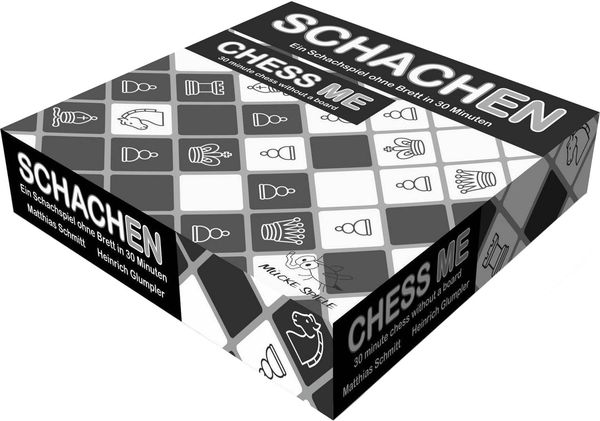"A Dynamic Repertoire for Black"
"You can't play the Queen's Gambit with Black any more" said Hector, in a bitter tone of voice. My friend, the ICCF grandmaster Hector Walsh, was trying to defend a difficult position in one of his correspondence games where he had ventured to play the Queen's Gambit Declined and faced the dreaded Exchange Variation which, according to his words, offered White the chance to play for two results (win or draw) while Black's best result was a draw. After looking at the position on his board, he carne to this sinister conclusion, which, it must be said, was in keeping with the sentiment of the time - the beginning of our century.
The possibility of playing almost without risk, with a draw in the bag and some chance of victory, had meant that Botvinnik's plan in the Exchange Variation, per fected by Kasparov, caused a sudden cessation of use in the 1...dS, 2...e6 order, while promoting White's scheme in several repertoire books. This resulted from the practice of strong players from the area, such as the International Master Juan Pablo Hobaica and the present writer, all living at that time on the beaches of the Argentinean Atlantic coast, halfway between Buenos Aires and Mar del Plata, two chess meccas in their own right.
At that time I was no langer playing the Queen's Gambit Declined. After a brief and ill-fated passage through the Grünfeld, I had found in the Leningrad Dutch the right defense to face 1.d4. In my formative chess years I had indeed used the Tartakower, Bondarevsky and Makogonov variants of the QGD based on Bobby Fischer's model in his match against Spassky. But it was a brief passage, from which I soon turned away in search of more dynamic schemes.
lt was not until I moved to Brazil in the second decade of the century that I began to analyze some positions of the declined Queen's Gambit, in the footsteps of great champions such as Kramnik, who showed that the order 1...dS, 2...e6 could be played with confidence even at the highest levels. So, by 2013 I started to play the defense, alternating it with the other replies against the Queen's Pawn opening in my repertoire.
In the preparation prior to the Batumi Olympiad 2018, which I attended as a repre sentative of the team from my native country, Uruguay, I had prepared some sharp lines within the universe of the declined Queen's Gambit. Although I could not put them into practice on that occasion, they were part of a series of surveys published in successive Yearbooks of the prestigious Dutch publisher New in Chess, which ended up being the basis of this work.
The main aim of the present work is to show that Black can indeed obtain positions where all three results are possible. The Queen's Gambit Declined, about a century after its golden age, is still a reliable and lively defense, where despite all the theory developed during its long existence it still holds secrets for analysts and offers new positions to enjoy a lively game, bath strategically and tactically.
During the course of writing this book I have had the help of some great friends who have read, reviewed and offered ideas for each chapter: they are the national masters Angela Bil Ramos, José Carlos Ferreira and Tadeu Santos Filho, all from Rio de Janeiro, the renowned film-maker and fan of the sixty-four squares game Juan Carlos Desanzo, from Cariló (the Argentinean green beach), and Dr. José Arlindo do Carmo, from Cuiabá (the capital of Mata Grosso, Brazil). My thanks go to them, as well as to the many other friends that chess has given me over the years.
This book was initially written in Spanish, my mother tongue, and published a few months ago by the well-known publisher Solis for the Portuguese-Spanish-Ameri can public. The English version has been corrected, updated and expanded with three new model games. I grew up in a world where famous chess publishers in South America published chess books of great theoretica! significa nee and with sig natures that were among the most recognized in the world. The successive eco nomie crises that are frequent in this part of the world, technological advances and piracy have unfortunately cornered them to the point of almost ceasing their efforts - and in some cases exterminating them.
That is why I welcome the existence of publishers specializing in chess such as Thinkers Publishing, which since its foundation has been presenting books of an excellent technica! level, the work of authors who are well known in the field of chess literature and who have made technica! contributions of incommensurable value.
I am extremely grateful to them - and especially to Daniël Vanheirzeele, who was my first contact with the publisher and Adrien Demuth, who did the always difficult job of editing - for giving me the opportunity to bring this work to you, my readers.
Luis Rodi 2024
 Excerpt
Excerpt


